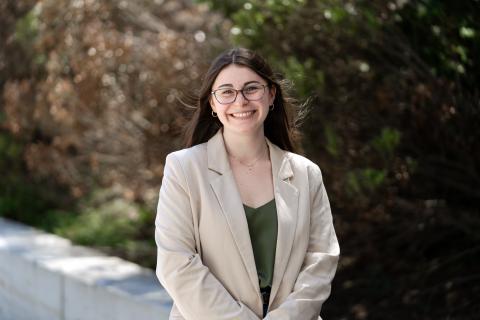
Upon completing my accounting degree at UNH, I decided to continue directly into the master's program. It made more sense to finish my graduate education now rather than returning to school later in my career. My experience at Paul College has been wonderful throughout both my undergraduate and graduate studies. The accounting program has opened unexpected opportunities for me.
Greater Academic Rigor Than Expected
The graduate coursework is significantly more challenging than I anticipated. I incorrectly assumed the transition would be relatively easy since I remained at UNH. Fortunately, my familiarity with Paul College made the adjustment more manageable. The professors expect a higher level of work from graduate students—the assignments are more complex and require deeper analysis. This has pushed me to grow academically in ways I hadn't expected.
Going Beyond Technical Skills
What distinguishes the MSA program is how it develops analytical thinking beyond basic accounting knowledge. In my non-profit accounting class, we examined how to look beyond financial statements to understand operational efficiency. This changed my perspective on organizational spending practices. I now understand that what appears to be excessive spending on fundraising events might be strategic when considering donor profiles and return on investment. The program encourages us to look past surface-level information and question underlying assumptions.
Real-World Applications
The international accounting course broadened my perspective by exploring not just the different standards, but why countries have different approaches based on their political and cultural contexts. This knowledge proved valuable during my tax internship when I worked with a foreign-based client. Understanding the reasoning behind the differences made me more effective than simply knowing the technical rules. These specialized skills have already helped differentiate me professionally.
Community of Support
Our small MSA cohort creates a close-knit learning community. Since we all take the same classes during the first semester, we quickly develop strong working relationships. I've formed meaningful connections with classmates that make collaboration more effective and enjoyable. The faculty members are not only knowledgeable but genuinely invested in our success. These relationships will likely extend beyond graduation into my professional career.
Balancing Academic Demands
Managing graduate school is more demanding than my undergraduate experience. The program includes more classes and higher expectations for each assignment. I've learned the importance of setting boundaries and prioritizing mental health while managing coursework. Making time for activities I enjoy remains essential, even during busy periods. I've had to make some adjustments, like reducing part-time work commitments, but the program is teaching valuable time management skills alongside accounting knowledge.
Preparation for Future Success
I'm confident that the skills and knowledge from this program will directly contribute to my career success. We're studying specialized topics not covered in undergraduate courses, which provides an advantage in the workplace. I encourage prospective students to take advantage of the collaborative environment at Paul College, where every course challenge critical thinking and questioning assumptions. These analytical skills extend beyond accounting and will benefit my entire professional journey. The program is preparing me well for both the CPA exam and the start of my career.